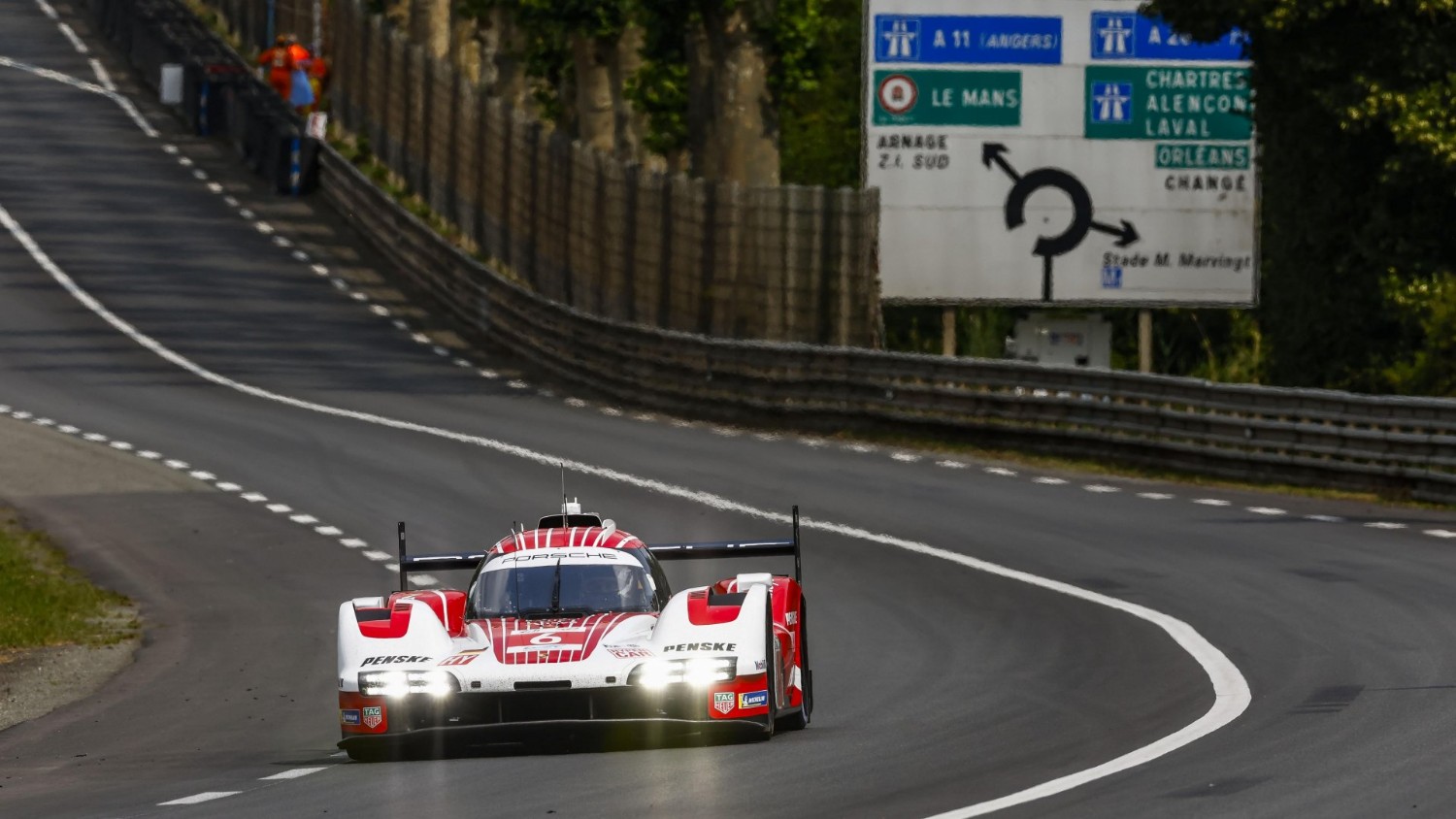WEC Rumor: Porsche tired of ‘Socialism Racing’ – can’t sell cars if they don’t win (Update)
This rumor is upgraded to ‘fact’ today. Porsche Penske Motorsport will end its involvement in the FIA World Endurance Championship (WEC) at the end of the current season. Dr Michael Steiner: “We very much regret that, due to the current circumstances, we will not be continuing our involvement in the WEC after this season.”
Motorsport has always been of major importance for Porsche and is an essential part of the brand. “We use motorsport as a development platform for future technology and to illustrate the potential of our sports cars,” says Thomas Laudenbach, Vice President Porsche Motorsport.
“With the Porsche 963 in the North American IMSA series and the Porsche 99X Electric in the Formula E World Championship, we want to continue to fight for overall victories in the future. That is our tradition and our focus.”
“Our participation in IMSA with the hybrid 963 remains a factory program, and we will also continue to be active in GT racing,” replied Thomas Laudenbach, vice president of Porsche Motorsport.
“Our trio of drive system types therefore also continues in motorsport. Electrification remains a key pillar of Porsche’s powertrain strategy, both on the road and on the racetrack.
“The development progress we’ve seen in the first 11 years of Formula E has been huge: in the inaugural year of 2014, drivers had to change cars halfway through the race because the batteries wouldn’t last a full race distance,” Laudenbach added.
“Those days are long gone. Next year, the fourth generation of Formula E cars will arrive – the biggest step in performance yet, with more than 800 PS and lap times likely close to those of Formula 2.
“In short: there is a great deal of technological knowledge currently being gained in electric motorsport, and our electric sports cars for the road benefit from that. We do not want to diminish those gains in knowledge.
With the withdrawal from the WEC, might Porsche decide to do an F1 engine program? Recall that they originally were going to team with Red Bull for the all-new 2026 F1 engine.
September 12, 2025
Porsche is in racing to help sell cars and not being able to win all season because of BoP decisions makes it difficult to justify the cost. Porsche finally broke through for its first victory of a frustrating 2025 World Endurance Championship season at last weekend’s Austin round.
Porsche’s motorsport vice-president, Thomas Laudenbach, expressed his dissatisfaction with the WEC’s Balance of Performance (BoP) rules—which have repeatedly penalized Porsche’s pace—and broader economic headwinds, the program’s future hangs in the balance.

Is Porsche’s WEC Involvement at Risk?
In the paddock last Saturday, The Race pressed Laudenbach on whether he could confirm Porsche’s participation in the 2026 WEC. His response was evasive: “It’s too early. We will [decide] when the time comes. It is a tough period, but we have to consider a lot of things.”
“We are not 100% happy with the season,” Laudenbach conceded. “We had a second place at Le Mans, and in some way, it’s not bad if you look at the competition. On the other side, it did hurt because the #6 car was close to a perfect race. Frankly speaking, it should have won.”
He has no issue with a fair fight yielding second place, but Le Mans felt anything but fair under the BoP umbrella. “You know how important a Le Mans victory is,” Laudenbach emphasized. “Ten seconds [actually 14 behind the winning Ferrari]—that was not the point. It was not because of a slow puncture. Do the analysis yourself. You can have all the data of the winning car. We know how quick it was.”
This lingering bitterness underscores Porsche’s core grievance: a championship where tiny regulatory nudges erase hard-earned advantages, fostering a perception of “socialized racing” that prioritizes parity over pure performance. BoP remains the elephant in the paddock—teams whisper about it to avoid sanctions—but Laudenbach was more direct: “That’s the reason why we are not 100% happy with the season. I think there are a lot of things to improve in the series.”
Economic Pressures Amplify the Stakes
Racing doesn’t exist in a bubble, and Porsche’s woes extend far beyond the track. When the company reported its first-half 2025 results last month, the numbers painted a grim picture: group sales revenue dipped to €18.16 billion from €19.46 billion, while operating profit cratered to €1.01 billion from €3.06 billion.
Chairman Oliver Blume sounded the alarm: “We continue to face significant challenges around the world. And this is not a storm that will pass. The world is changing dramatically—and, above all, differently to what was expected just a few years ago. Some of the strategic decisions made back then appear in a different light today.”
Will motorsport feel the knife?
For now, Porsche aims to stick with both the WEC and IMSA, where early testing of the 963’s 2026 spec already wrapped up at Motorland Aragon this summer. Partner commitments are secured through 2027, so an abrupt exit would carry minimal financial penalties—but it would jolt employees amid the company’s turmoil.
Narrowing to IMSA only is on the table, though Laudenbach wouldn’t speculate: “Well, I’m not commenting on that because the decision has not been made yet, so it’s just too early.”
IMSA has allowed Porsche to win because of BoP decisions that allow Porsche to win races and help sell race cars. IMSA knows which side of their bread is buttered; in other words, they are better at Socialism than WEC.
